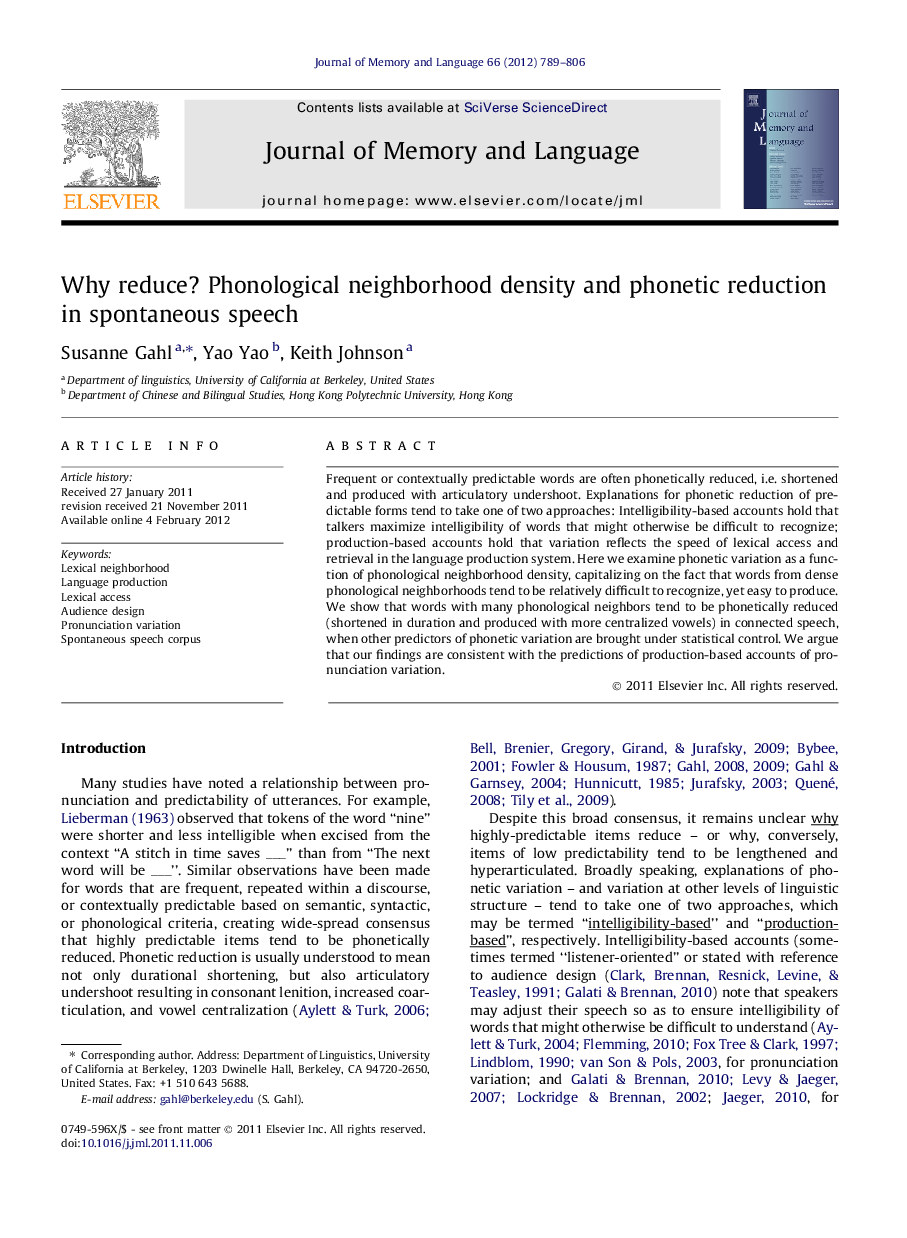| Article ID | Journal | Published Year | Pages | File Type |
|---|---|---|---|---|
| 931947 | Journal of Memory and Language | 2012 | 18 Pages |
Frequent or contextually predictable words are often phonetically reduced, i.e. shortened and produced with articulatory undershoot. Explanations for phonetic reduction of predictable forms tend to take one of two approaches: Intelligibility-based accounts hold that talkers maximize intelligibility of words that might otherwise be difficult to recognize; production-based accounts hold that variation reflects the speed of lexical access and retrieval in the language production system. Here we examine phonetic variation as a function of phonological neighborhood density, capitalizing on the fact that words from dense phonological neighborhoods tend to be relatively difficult to recognize, yet easy to produce. We show that words with many phonological neighbors tend to be phonetically reduced (shortened in duration and produced with more centralized vowels) in connected speech, when other predictors of phonetic variation are brought under statistical control. We argue that our findings are consistent with the predictions of production-based accounts of pronunciation variation.
► We analyze word durations and vowel dispersion in spontaneous speech. ► Words from dense neighborhoods are shortened and contain more centralized vowels. ► We discuss the theoretical implications of our findings in light of previous theoretical and empirical literature.
